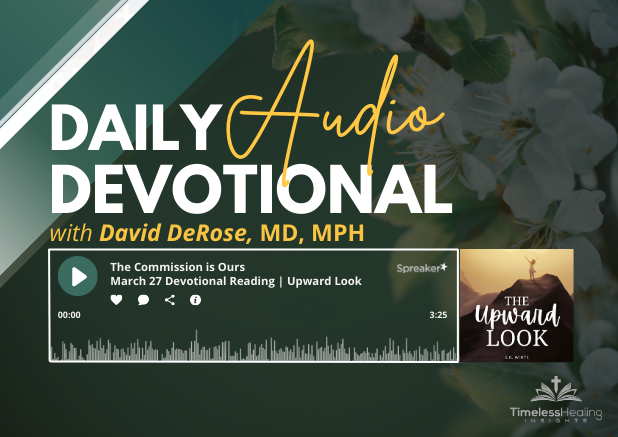
But ye shall receive power, after that the Holy Ghost is come upon you: and ye shall be witnesses unto me both in Jerusalem, and in all Judaea, and in Samaria, and unto the uttermost part of the earth. Acts 1:8.
When in His expiring moments on the cross, Christ exclaimed, “It is finished,” the veil of the Temple was rent from top to bottom. The need for the Jewish system of sacrifices and offerings had ended. Type had met antitype in the death of the One to whom the sacrifices pointed. A new and living way had been opened—a way by which Jew and Gentile, free and bond, could come to God and find pardon and peace.
Christ is to be uplifted as the Redeemer of the world. He is to be proclaimed as the Lamb of God, which taketh away the sin of the world. “Ye shall receive power,” the Saviour declared, “after that the Holy Ghost is come upon you: and ye shall be witnesses unto me both in Jerusalem, and in all Judaea, and in Samaria, and unto the uttermost part of the earth” (Acts 1:8).
Christ’s last act before leaving this earth was to commission His ambassadors to go to the world with His truth. His last words were spoken to impress the disciples with the thought that they held in trust the message of Heaven for the world. In obedience to the Saviour’s command, the disciples returned to Jerusalem, and there waited for the promised outpouring of the Holy Spirit. Heavenly intelligences cooperated with them, and gave power to the message that they bore. The Holy Spirit gave efficiency to their missionary efforts, and on one occasion three thousand were converted in a day. Paul, miraculously transformed from a bitter persecutor to a zealous believer, was added to the number of the disciples. To him was entrusted in a special manner the work of giving the message to the Gentiles.
To John, banished to the Isle of Patmos for his faithfulness in witnessing to Christ, there was given special light to the church. In his exile he beheld his glorified Redeemer, and saw more distinctly than ever before what was to be at the close of this earth’s history. He saw the mercy, tenderness, and love of God blending with His holiness, justice, and power. He saw sinners finding a Father in Him of whom their sins had made them afraid. Mercy and truth met together; righteousness and peace kissed each other. In the place of fleeing from God because of our sins, we flee to His arms for protection and pardon. The throne, terrible to us in our unbelief, becomes in our repentance a place of refuge.—Manuscript 38, March 27, 1905, “Be of Good Cheer.”
Christ is to be uplifted as the Redeemer of the world. He is to be proclaimed as the Lamb of God, which taketh away the sin of the world. “Ye shall receive power,” the Saviour declared, “after that the Holy Ghost is come upon you: and ye shall be witnesses unto me both in Jerusalem, and in all Judaea, and in Samaria, and unto the uttermost part of the earth” (Acts 1:8).
Christ’s last act before leaving this earth was to commission His ambassadors to go to the world with His truth. His last words were spoken to impress the disciples with the thought that they held in trust the message of Heaven for the world. In obedience to the Saviour’s command, the disciples returned to Jerusalem, and there waited for the promised outpouring of the Holy Spirit. Heavenly intelligences cooperated with them, and gave power to the message that they bore. The Holy Spirit gave efficiency to their missionary efforts, and on one occasion three thousand were converted in a day. Paul, miraculously transformed from a bitter persecutor to a zealous believer, was added to the number of the disciples. To him was entrusted in a special manner the work of giving the message to the Gentiles.
To John, banished to the Isle of Patmos for his faithfulness in witnessing to Christ, there was given special light to the church. In his exile he beheld his glorified Redeemer, and saw more distinctly than ever before what was to be at the close of this earth’s history. He saw the mercy, tenderness, and love of God blending with His holiness, justice, and power. He saw sinners finding a Father in Him of whom their sins had made them afraid. Mercy and truth met together; righteousness and peace kissed each other. In the place of fleeing from God because of our sins, we flee to His arms for protection and pardon. The throne, terrible to us in our unbelief, becomes in our repentance a place of refuge.—Manuscript 38, March 27, 1905, “Be of Good Cheer.”
Reference: E.G. White, "The Upward Look," p. 100
